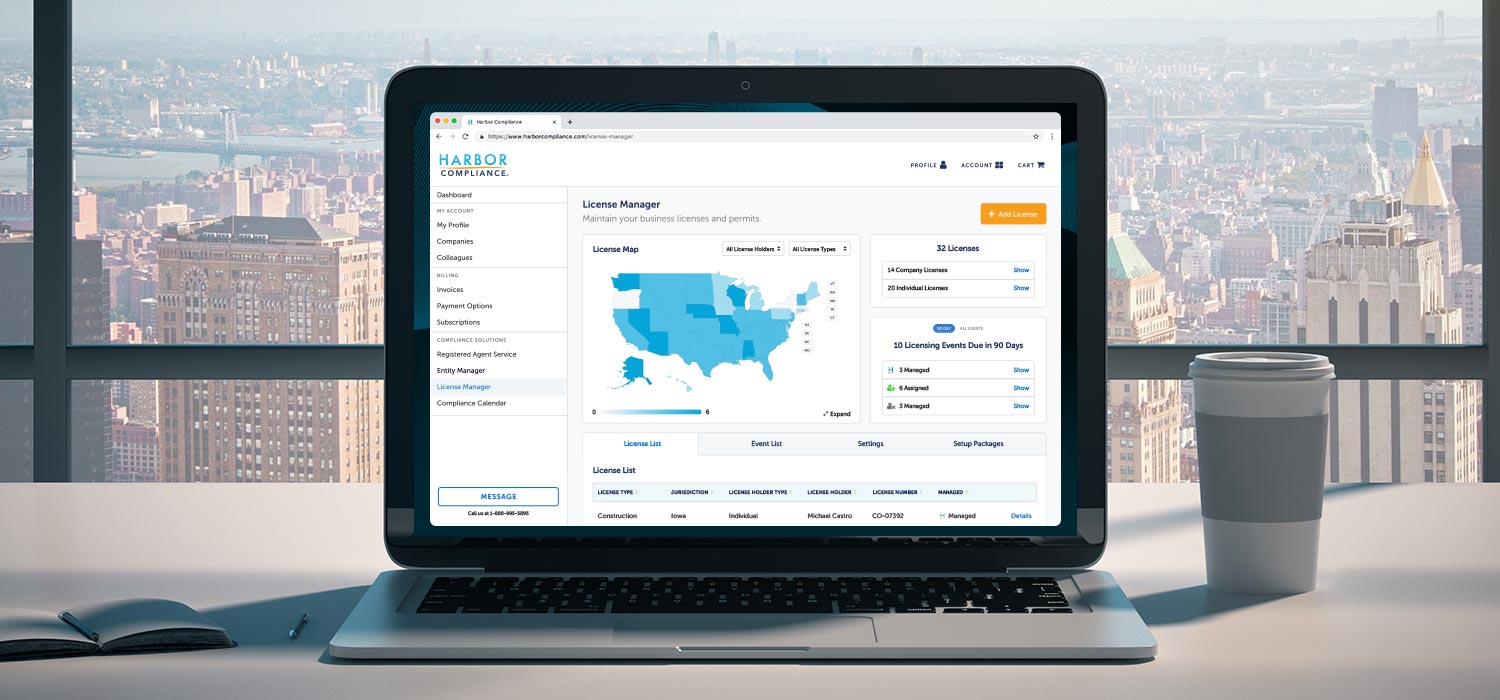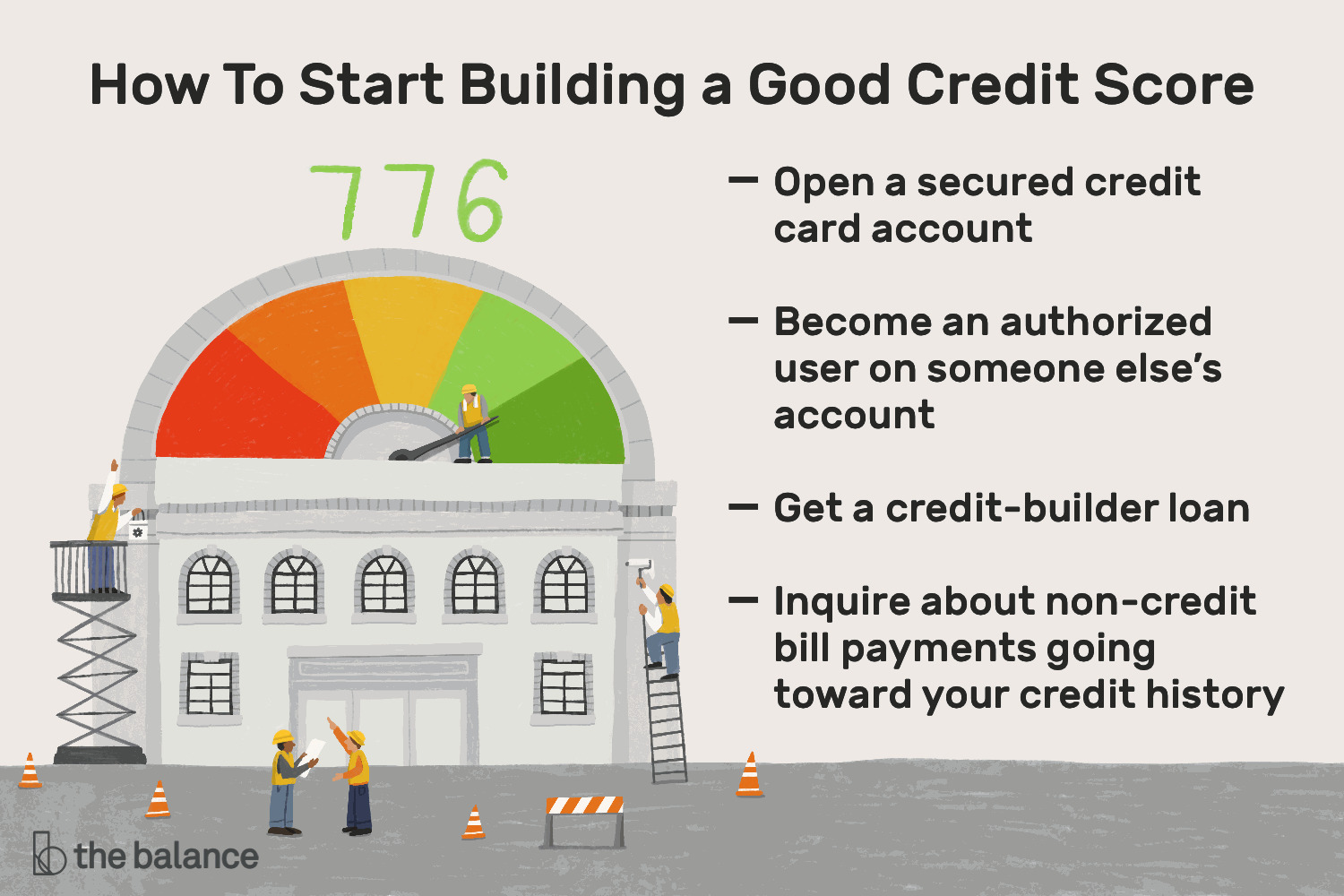Home>Finance>How Long Does It Take To Get A Florida Consumer Finance License


Finance
How Long Does It Take To Get A Florida Consumer Finance License
Modified: March 1, 2024
"Find out the time required to obtain a consumer finance license in Florida. Explore the process and requirements for obtaining a finance license in this state."
(Many of the links in this article redirect to a specific reviewed product. Your purchase of these products through affiliate links helps to generate commission for LiveWell, at no extra cost. Learn more)
Table of Contents
- Introduction
- Eligibility requirements for a Florida consumer finance license
- Application process for a Florida consumer finance license
- Documentation and Fees Required for a Florida Consumer Finance License
- Processing Time for a Florida Consumer Finance License Application
- Key Regulations and Compliance Obligations for Florida Consumer Finance License Holders
- Renewal Process for a Florida Consumer Finance License
- Conclusion
Introduction
Welcome to the world of consumer finance in the sunshine state of Florida! If you are a financial institution or individual looking to offer consumer finance services in Florida, obtaining a consumer finance license is an essential step.
A Florida consumer finance license allows you to legally provide a wide range of financial products and services to consumers, including personal loans, retail installment sales contracts, and other forms of credit. This license ensures that you comply with the state’s regulations and helps to build trust with your customers.
However, before diving into the process of obtaining a Florida consumer finance license, it is important to understand the eligibility requirements, application process, documentation, fees, and compliance obligations associated with it. This comprehensive guide will walk you through all the crucial aspects, providing you with a solid foundation of knowledge and helping you navigate through the complexities of acquiring and maintaining a Florida consumer finance license.
Whether you are a lending institution, a fintech startup, or an individual looking to venture into the consumer finance industry, this article will serve as your roadmap to obtaining a Florida consumer finance license. So, let’s get started!
Eligibility requirements for a Florida consumer finance license
Before applying for a Florida consumer finance license, it is important to ensure that you meet the eligibility criteria set forth by the state regulatory authorities. The requirements vary depending on the type of entity seeking the license. Here are the general eligibility criteria:
- Legal entity: To obtain a consumer finance license in Florida, you must be a legally formed entity, such as a corporation, limited liability company (LLC), partnership, or sole proprietorship.
- Good character and reputation: The Florida Office of Financial Regulation (OFR) requires individuals associated with the entity to possess good character and reputation. This includes conducting a background check and submitting fingerprints for all partners, officers, directors, and principal employees.
- Sufficient financial standing: Applicants must demonstrate sufficient financial resources and stability to conduct consumer finance activities responsibly. The OFR may require financial statements, bank references, surety bonds, or other evidence of financial viability.
- Business plan: A detailed business plan outlining the entity’s proposed operations, marketing strategies, and compliance measures is typically required. The plan should demonstrate the entity’s ability to operate within the regulations governing consumer finance in Florida.
- Licensing of officers and directors: All officers and directors of the entity must hold appropriate licenses and/or registrations as required by the OFR.
It is important to note that these are just the general eligibility requirements. Depending on the specific nature of your business and the types of consumer financial services you plan to offer, there may be additional criteria to fulfill. Consulting with legal and financial professionals who specialize in consumer finance can help clarify any specific requirements pertaining to your business.
Meeting these eligibility requirements is crucial for a successful application process. Once you are confident that you meet all the necessary criteria, you can move forward with the application process for a Florida consumer finance license.
Application process for a Florida consumer finance license
Obtaining a Florida consumer finance license involves a structured application process that requires attention to detail and thorough preparation. Here are the key steps involved:
- Gather required documentation: Before starting the application process, gather all the required documentation. This usually includes the entity’s formation documents, financial statements, business plan, proof of good character and reputation, and any other supporting documents outlined by the Florida Office of Financial Regulation (OFR).
- Submit the application: The next step is to submit the license application to the OFR. Ensure that you provide accurate and complete information as any discrepancies or missing documents can delay the process. The application should be accompanied by the required fees, which vary depending on the type of license sought.
- Background checks and fingerprinting: As part of the application process, individuals associated with the entity, such as officers, directors, partners, and principal employees, will undergo a background check. Fingerprinting may also be required, and the OFR will provide instructions for this procedure.
- Application review and evaluation: Once the application is submitted, it undergoes a thorough review and evaluation by the OFR. This includes an assessment of the entity’s financial standing, compliance records, business plan, and the qualifications and credentials of the individuals associated with the entity.
- Additional documentation and information: During the application review, the OFR may request additional documentation or information to support the evaluation process. It is important to provide prompt and accurate responses to these requests to avoid any delays.
- Compliance examination: As part of the application process, the OFR may also conduct a compliance examination of the entity. This examination ensures that the entity has robust internal controls and procedures in place to comply with the relevant consumer finance laws and regulations.
- License approval: If the application and supporting documentation meet all the requirements and pass the evaluation process, the OFR will approve the consumer finance license. Once approved, the entity can commence operations as per the regulations specified by the license.
It is important to note that the application process timeline can vary depending on factors such as the complexity of the application, the responsiveness of the applicant, and the workload of the regulatory authorities. Therefore, it is advisable to start the application process well in advance and ensure that all the necessary documentation and information are complete and accurate.
In summary, the application process for a Florida consumer finance license requires thorough preparation, attention to detail, and compliance with the requirements set forth by the OFR. By following the prescribed steps and providing all the required documentation, you can increase the chances of a successful application and obtain the license to offer consumer finance services in the state of Florida.
Documentation and Fees Required for a Florida Consumer Finance License
When applying for a Florida consumer finance license, it is essential to prepare the necessary documentation and pay the required fees. The specific documentation and fees may vary depending on the type of license and the nature of your business. Here are some of the common documentation and fees required:
- Entity formation documents: Provide the official documentation that demonstrates the legal formation of your entity. This may include articles of incorporation for corporations, certificates of organization for LLCs, or partnership agreements for partnerships.
- Financial statements: Submit audited or reviewed financial statements prepared by a certified public accountant. These statements should reflect the financial condition and stability of your entity.
- Business plan: Prepare a detailed business plan that outlines your entity’s proposed operations, target market, marketing strategies, risk management measures, and compliance protocols. The business plan helps demonstrate your understanding of the industry and your ability to operate within regulatory guidelines.
- Proof of good character and reputation: Individuals associated with the entity, such as officers, directors, partners, and principal employees, may need to provide proof of good character and reputation. This may involve submitting background checks, fingerprints, and personal references.
- Licensing of officers and directors: Ensure that all officers and directors of your entity hold the appropriate licenses and registrations required by the Florida Office of Financial Regulation (OFR). This helps ensure that the individuals leading the organization are competent and qualified.
- Additional documentation: Depending on the nature of your consumer finance activities, additional documentation may be required. This could include loan product disclosure documents, privacy policies, compliance manuals, marketing materials, and other relevant documentation that demonstrates your compliance with state regulations.
- Fees: Pay the required fees as specified by the OFR. The fees vary depending on the type of license you are applying for and the scope of your consumer finance activities. The OFR publishes a fee schedule on their website, which should be consulted to determine the applicable fees.
It is important to ensure that all the required documentation is accurate, complete, and properly organized. Any missing or incorrect information can lead to delays in the application process. Additionally, it is crucial to keep copies of all documentation submitted for your own records.
By gathering the necessary documentation and paying the required fees, you can fulfill the application requirements for a Florida consumer finance license and move closer to becoming a licensed provider of consumer finance services in the state.
Processing Time for a Florida Consumer Finance License Application
When applying for a Florida consumer finance license, it is important to understand that the processing time can vary depending on various factors. The Florida Office of Financial Regulation (OFR) typically aims to process license applications as efficiently as possible while ensuring thorough evaluation and compliance with regulations. Here are some factors that can impact the processing time:
- Completeness of the application: The time taken to process your application largely depends on the completeness of the submitted documents and information. Providing all the required documentation accurately and promptly can expedite the process.
- Application complexity: The complexity of your application can also impact the processing time. If your business involves intricate financial products or services, or if there are unique aspects of your operations, the OFR may require additional time for evaluation.
- Regulatory workload: The workload of the OFR and the number of applications being processed at a given time can affect the processing time. During peak periods or times of increased application volume, it may take longer for your application to be reviewed and approved.
- Additional information requests: If the OFR finds any discrepancies or requires additional information during the evaluation process, they may request further documentation. Promptly responding to these requests can help expedite the processing time.
- Compliance examination: In some cases, the OFR may conduct a compliance examination of your entity as part of the application process. This examination ensures that your entity has robust internal controls and procedures in place to comply with consumer finance laws. The time required for the examination can contribute to the overall processing time.
Given these factors, it is essential to be patient during the application process. The OFR aims to process applications within a reasonable timeframe, but it is crucial to understand that the duration can vary depending on the circumstances. It is advisable to submit your application well in advance of the desired start date of your consumer finance operations to account for any potential delays.
While the exact processing time cannot be guaranteed, you can stay informed by regularly checking the status of your application through the OFR’s online portal or by contacting their licensing department. Remember to maintain open lines of communication and provide any requested information promptly to help expedite the process.
By understanding the potential factors that can influence the processing time and being proactive in submitting a complete and accurate application, you can increase the likelihood of a smooth and timely approval of your Florida consumer finance license.
Key Regulations and Compliance Obligations for Florida Consumer Finance License Holders
Acquiring a Florida consumer finance license comes with a range of regulatory responsibilities that license holders must adhere to. These regulations are in place to protect consumers and ensure fair and transparent practices within the consumer finance industry. Here are some of the key regulations and compliance obligations for Florida consumer finance license holders:
- Loan interest rate limits: Consumer finance license holders in Florida must comply with the state’s usury laws, which impose limits on interest rates that can be charged on loans. The current maximum interest rates allowed for various types of loans are specified by the Florida Statutes and should be strictly followed.
- Loan disclosure requirements: Lenders are required to provide borrowers with proper loan disclosures, which include important information about the loan terms, interest rates, fees, and repayment obligations. The loan disclosures must comply with the federal Truth in Lending Act (TILA) and other applicable laws to ensure borrowers are fully informed about their financial obligations.
- Collection practices: Florida consumer finance license holders must adhere to fair debt collection practices as outlined by the federal Fair Debt Collection Practices Act (FDCPA) and the Florida Consumer Collection Practices Act (FCCPA). They must not engage in abusive, deceptive, or unfair practices when attempting to collect debts from borrowers.
- Privacy and data security: License holders are required to protect the privacy and personal information of their borrowers. They must comply with federal and state privacy laws, such as the Gramm-Leach-Bliley Act (GLBA) and the Florida Information Protection Act, by implementing appropriate safeguards to secure consumer data and prevent unauthorized access or disclosure.
- Advertising and marketing: License holders must ensure that their advertising and marketing practices comply with relevant state and federal laws, including rules established by the Consumer Financial Protection Bureau (CFPB). This includes providing clear and accurate information, avoiding deceptive practices, and disclosing any fees or terms that may affect the consumer’s decision to borrow.
- Fair lending practices: Consumer finance license holders must adhere to fair lending practices and comply with the federal Equal Credit Opportunity Act (ECOA). They must refrain from discriminatory lending practices based on factors such as race, gender, age, or marital status.
- Compliance reporting requirements: License holders may be required to submit periodic reports to the Florida Office of Financial Regulation (OFR) to demonstrate compliance with relevant regulations. These reports may include financial statements, audit reports, and information regarding consumer complaints and investigations.
It is important for license holders to establish comprehensive compliance management systems and processes to ensure ongoing adherence to these regulations. This involves implementing policies, procedures, and training programs to promote compliance awareness and prevent violations. Regular monitoring and internal audits can also help identify and address any potential compliance issues.
By maintaining a thorough understanding of the regulations and diligently fulfilling their compliance obligations, Florida consumer finance license holders can uphold the integrity of the industry and build trust with their customers.
Renewal Process for a Florida Consumer Finance License
Obtaining a Florida consumer finance license is not a one-time process. License holders are required to renew their licenses periodically to continue operating legally within the state. The renewal process is designed to ensure that license holders continue to meet the regulatory requirements and maintain compliance with the applicable laws. Here’s an overview of the renewal process:
- Notification: The Florida Office of Financial Regulation (OFR) will typically send a renewal notification to license holders well in advance of the expiration date. It is essential to keep the contact information on file with the OFR up to date to ensure timely receipt of renewal notices.
- Submission of renewal application: License holders must submit a renewal application by the specified deadline. This application typically includes updates to the licensee’s contact information, any changes in the ownership or control of the business, and any other relevant details required by the OFR.
- Payment of renewal fees: License holders are required to pay the renewal fees as specified by the OFR. The fees vary depending on the type of license held and the scope of the consumer finance activities. The renewal fees should be submitted along with the application to avoid any delays.
- Review and evaluation: After receiving the renewal application, the OFR will review and evaluate the licensee’s compliance with the applicable laws and regulations. This may include a review of the licensee’s financial statements, audits, and any other documentation deemed necessary by the OFR.
- Additional information requests: If the OFR requires any additional information or clarification during the renewal review process, the licensee will be notified accordingly. It is important to provide the requested information promptly to ensure a smooth renewal process.
- Compliance examination: In some cases, the OFR may conduct a compliance examination of the licensee as part of the renewal process. This examination ensures that the licensee continues to uphold the required internal controls and compliance measures. The examination may include a review of records, policies, and procedures.
- License renewal approval: If the OFR determines that the licensee has satisfied all the renewal requirements, the license will be renewed, and the licensee will receive a new license certificate. It is important to retain this certificate and display it in a visible location within the business premises.
License holders should be proactive in monitoring the expiration date of their license and initiating the renewal process in a timely manner to avoid any disruption in their operations. Failure to renew the license within the specified timeframe may result in penalties, fines, or even suspension of the license.
It is advisable to maintain records of all renewal documents, correspondence, and payment receipts for future reference and compliance audits. Having a well-organized system to track renewal deadlines and ensure compliance with the renewal process is crucial for maintaining a valid and active Florida consumer finance license.
By understanding and following the renewal process outlined by the OFR, license holders can ensure the ongoing legality of their consumer finance operations and continue to serve their customers in the state of Florida.
Conclusion
Obtaining a Florida consumer finance license is a crucial step for individuals and entities looking to offer consumer finance services within the state. By acquiring the license, you can ensure compliance with the regulations, build trust with your customers, and operate legally in the consumer finance industry.
In this comprehensive guide, we have explored the various aspects of obtaining and maintaining a Florida consumer finance license. We covered the eligibility requirements, application process, required documentation, fees, processing time, key regulations, and compliance obligations for license holders. Understanding these factors is essential for a smooth and successful license application and renewal process.
Remember that compliance with the regulations is an ongoing obligation. License holders must stay updated on the changing regulatory landscape and adapt their policies, procedures, and practices accordingly. Regular monitoring, internal audits, and staff training are crucial elements of maintaining compliance and upholding the integrity of the consumer finance industry.
It is always advisable to seek guidance from legal and financial professionals who specialize in consumer finance to ensure accurate interpretation and application of the regulations specific to your business. They can provide personalized advice and support throughout the licensing process and beyond, helping you navigate the complexities and optimize your consumer finance operations.
By following the guidelines outlined in this guide, you can position yourself for success in the Florida consumer finance industry. Remember, obtaining and maintaining a consumer finance license is not just about fulfilling regulatory requirements; it is about providing trustworthy and responsible financial services that benefit consumers and contribute to the growth of the industry.
So, take the necessary steps, gather the required documentation, pay attention to compliance obligations, and navigate the application and renewal processes with care. By doing so, you can establish a solid foundation for your consumer finance business in Florida and thrive in this dynamic and rewarding industry.














